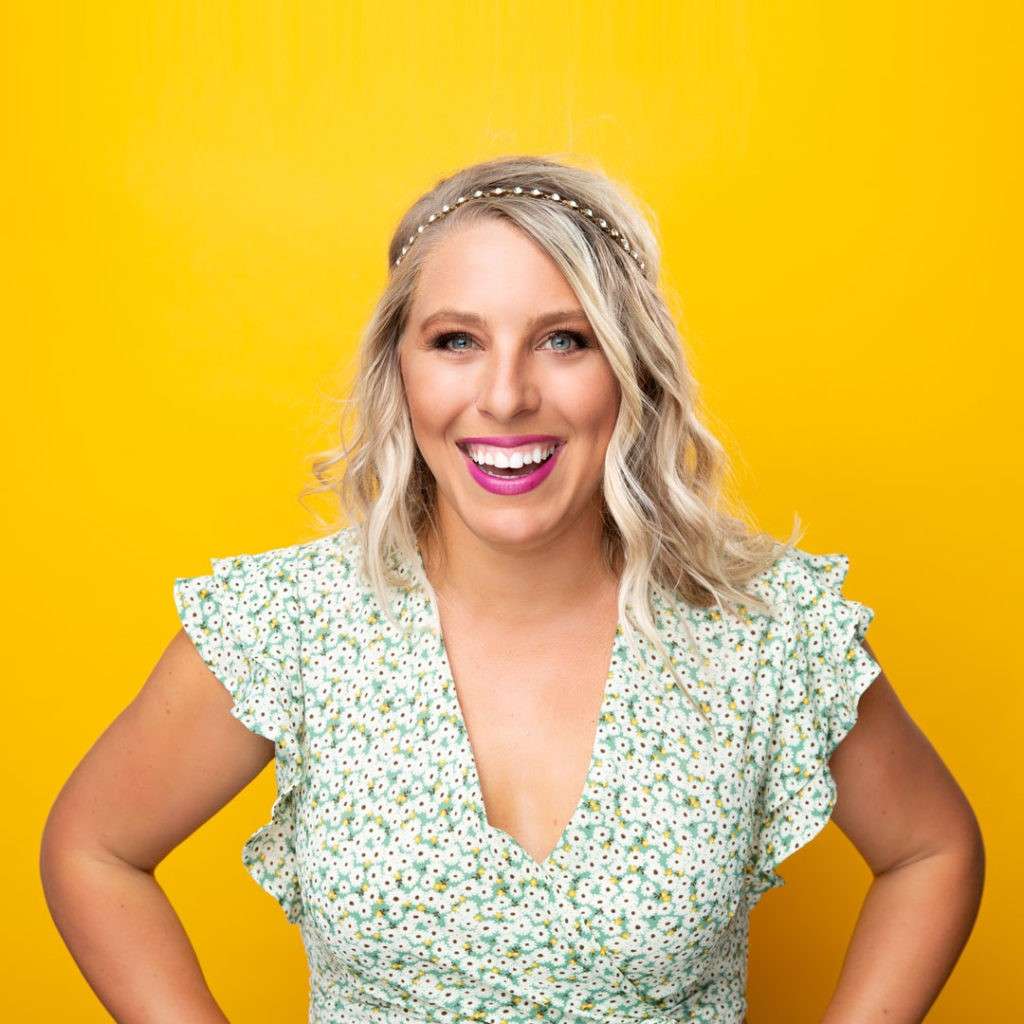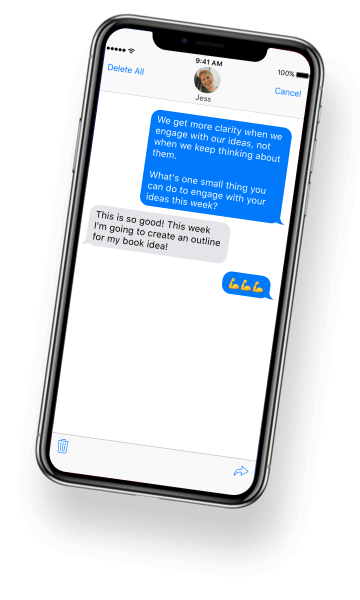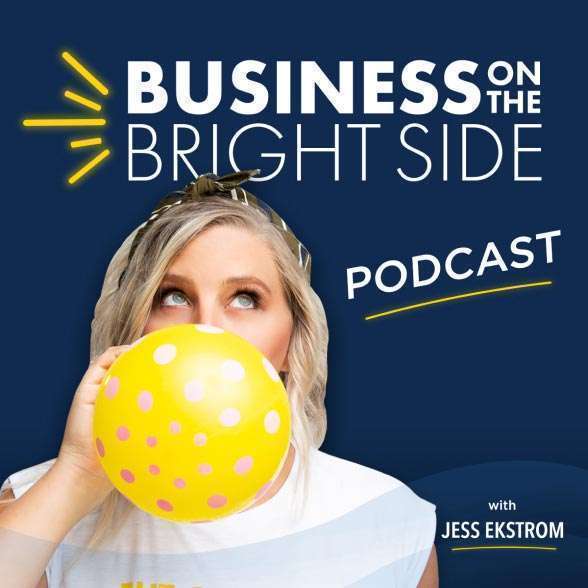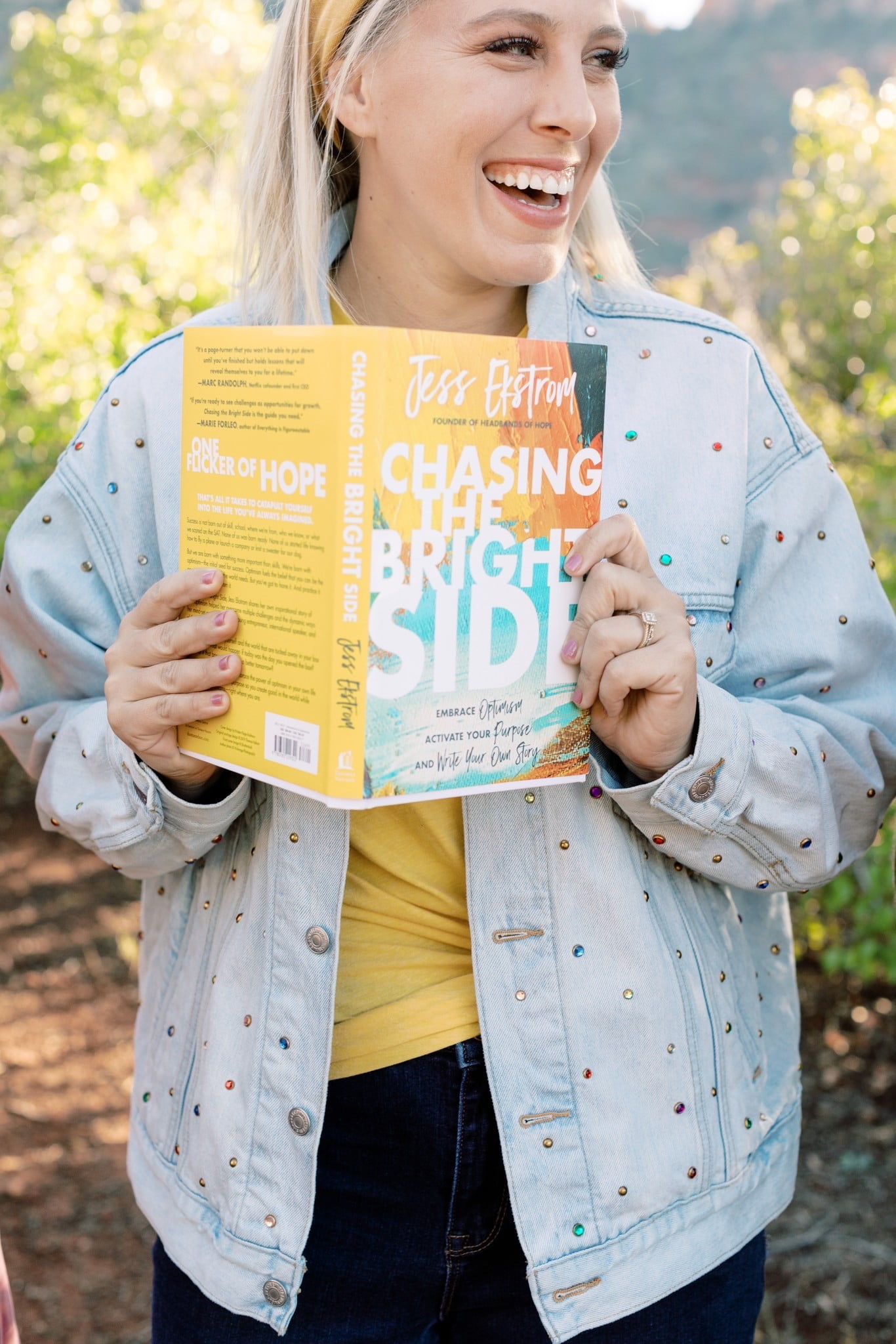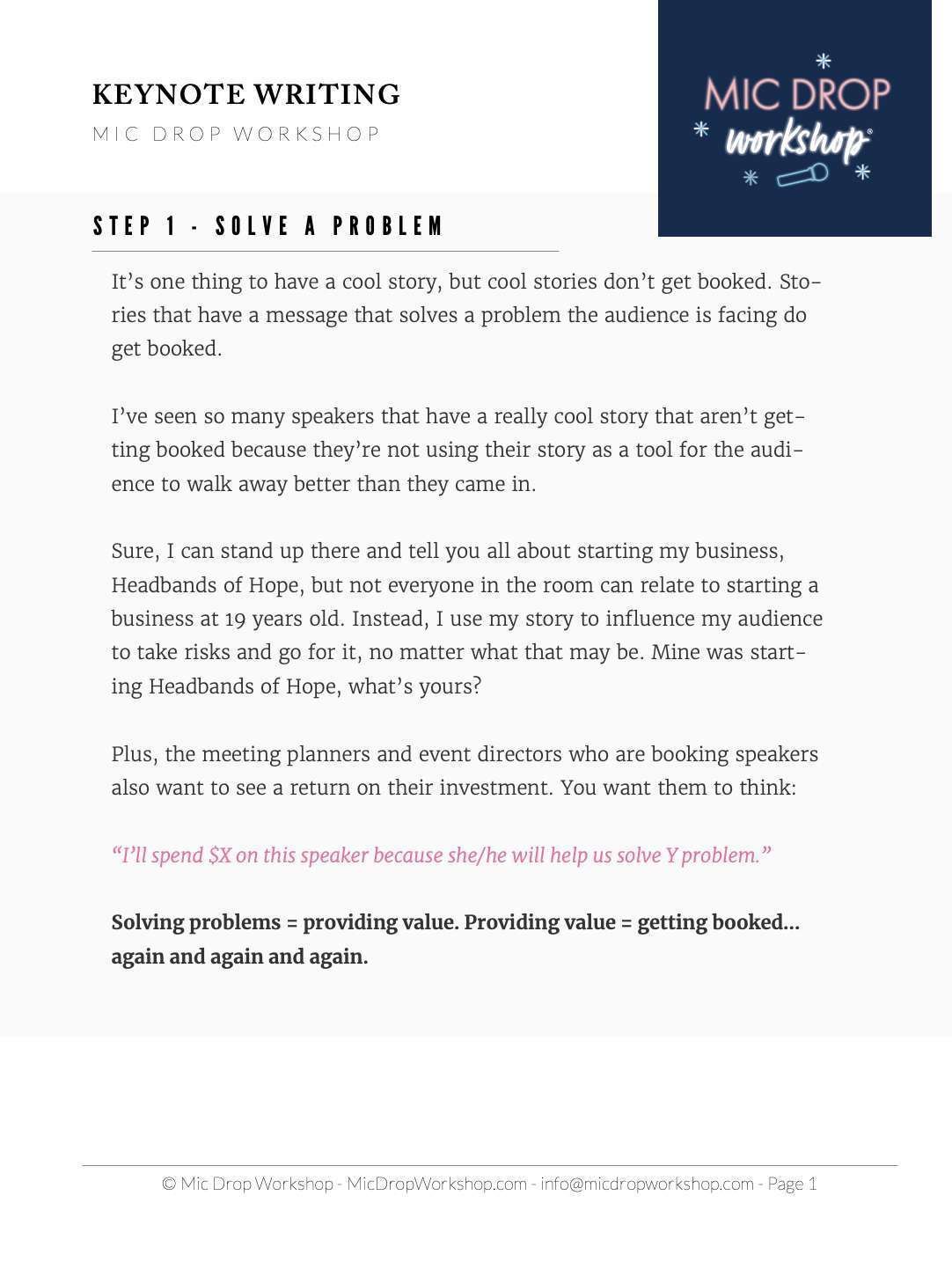SHOW NOTES:
I believe that everyone has a story to share on their experiences in life and business! With the self-help genre booming right now, I’d love to help more women authors line the shelves at Target! If you have something to say, I want to help you get it on paper and published! In this episode, I’m sharing the five things you need to think about when publishing your non-fiction book!
Meeting Bob Goff (4:18)
Before Publishing Chasing the Bright Side (2:48)
Using Your Story to Help Others with Their Story (6:09)
5 Things to Think About when Publishing Your Non-Fiction Book: (6:22)
- Think of your book idea as a before/after point for a reader.
- What do you want to be known for?
- Your book should be similar enough to some of your favorites, but different enough to stand out.
- Don’t write your whole book, write your proposal.
- Your book is your business card.
The Episode’s One Liner: All of your experiences (good, bad, and funny) add up to a story, and the value in every lesson is the story that goes with it. What story will you tell? (14:41)
Links:
Review the Transcript:
Hey everyone. So before we dive in, I want to tell you a quick story. So the other day there was a Barnes & Noble that was open, I always like to go in and check out Chasing the Bright Side, maybe sign a few copies. And I went in there and I went down to the business section and I was just looking at the wall of books and I realized that every single front facing book was a man, every single one of them in the business section was a man that was forward facing, they’re best sellers, the ones that people gravitate to first. And I just had this moment where I was like, this is not okay, we need to diversify the voices that we hear from in speaking and publishing, what we label as experts, who we listen to. And you know that I started Mic Drop Workshop to help create more women speakers, but now I want to help more women write books, and I want to help them get traditionally published like I did with Harper Collins.
So that’s why I am hosting Write the Dang Book Conference. It is a free five day virtual conference for women to get their non-fiction books published. So from September 21st to the 25th, you’ll join a closed Facebook group of other women writers who are on the same publishing path as you. And each day, I’ll kick off live, but you can always watch the replay later and there’ll be new topics with publishing, crafting your book idea, getting agents, and there’ll be challenges, lessons all around getting your book published and then you’ll listen to different speakers. We have Amber Rae, author of Choose Wonder Over Worry, Meera Lee Patel, author of Start Where You Are, just about their writing process, advice that they have for you to get your book out into the world and I am super excited for it.
We’re still building the show notes on businessonthebrightside.com, so that site isn’t live yet. So instead, I’m going to have you go directly to my Instagram which is @Jess_ ekstrom and hit the link in my bio. You’ll see where to sign up for the free Write the Dang Book Conference, sign up, you’ll get a free moment to meaning worksheet to get started on your book idea and then I will see you on September 21st.
What’s up everybody? It is Jess Ekstrom and welcome to Business on the Bright Side, the podcast where you can learn how to make a living and make a difference at the same time. Life is short and so is my attention span, so let’s get started. For a while I thought my book, Chasing the Bright Side, wasn’t going to happen. The irony was this book that I wanted to write was about optimism and pushing through failure and getting past rejection when I was facing rejection after rejection from literary agents. And the book that I was pitching originally wasn’t exactly Chasing the Bright Side, it was more about stories from other successful people and kind of the middle from their start to where they’re at now. And it was kind of this like more Chicken Soup for the Soul style and I think that I was actually trying to hide behind other people’s stories because I wasn’t ready to tell mine and we got past that.
But I was feeling like this book, this traditional publishing route wasn’t going to happen for me. I had one agent say that I needed a ghost writer to write a book if I ever was going to write one, I had one tell me that I was probably going to need to prepare myself to spend $100,000 on a writing coach or for someone to write my proposal for me, and I felt like I just kept hitting dead end after dead end. And now I realize the way that I was pitching this book and the way that I was positioning it wasn’t something that was going to attract literary agents or publishers, which I’ll get into later in this episode. But it wasn’t until I was speaking at an event and Bob Goff was one of the speakers at this event. And of course he is a big time author and New York Times bestseller and I was standing backstage and I saw him and I was about to go up and speak and he had just gotten done speaking and I just thought, this is my shot, this is my chance.
And I went over to him and I introduced myself and I was like, “Look, I have this book idea, I keep running into dead ends with agents, do you know someone that you could introduce me to where they might be interested in working with me with a book deal?” And he immediately gave me the name of an agent, said talk to this person and then he was like, “Here’s my personal phone number, if you ever have any questions or anything about publishing, you reach out.” And I was jaw to the floor, oh my gosh, Bob Goff just gave me the name of a literary agent and gave me his personal phone number. And then after I went and watched his talk, I realized that at the end of his talk, he put his phone number on his slides for like all 3,000 people sitting in the audience. And I was like, “Oh, thought I was special, guess I’m not.” But no matter what, I was super grateful.
And it was that agent that really saw the potential in me, in my story and instead of hiding behind other people’s stories with this original book idea that I had. And the thing with self-help, sometimes self-help I feel like it a bad rap that you have to be in so much emotional turmoil to pick up a self-help book or it just has this stigma attached to it. But really, self-help is about using your story to help people with their story. And as you can see from my story, the book writing and book publishing and industry as a whole can be kind of bumpy and really just this uncharted territory. So I wanted to give you guys five things that you need to know to get your nonfiction book published.
Number one, think of your book idea as a before and after point for a reader. So when you think about your book idea, a lot of people lean on a story or lean on just a certain topic, but think of your book as the transformation point, as a turning point for someone. I’m sure maybe you’ve read a book that after you’ve read it you thought differently about something. So how will your book serve as a before and after point for someone? So the value of a book or a speech or really anything is about solving a problem. And it’s always more about what it will do for them and less what it will do for you. So we’ll also talk about what a book can do for your career, but it’s important to start with what the book will do for others. Your book, isn’t just a way for you to share some of your successes or gain credibility, it has to provide a transformation for the reader.
So that’s why when you think about your book idea, think about what problem is it solving and then focus more on the takeaway than the topics. And I talk about this and speaking it with Mic Drop Workshop as well is you can list topics all day long; leadership, confidence, empowerment, but people care more about the takeaway, the tangible takeaway than they do about the topic. So what are the takeaways that people will gain from your book?
Number two, think about what do you want to be known for? So maybe you’re someone who has a lot of ideas, like me. I feel like my head is constantly spinning. Whether it be because of too much coffee or whatever, but my head is always churning with ideas. And I always feel like, oh, I could write a book about that, I could launch a podcast about this and there are so many things that you probably could do. But at the end of the day, think about your book being something that is going to be before your name, being at the top of your Google search, being attached to you for at least three to five years. So what do you feel confident enough in to have that tied to you for that amount of time?
And so a book isn’t just about a topic that you can speak on or maybe get a few gigs from or a side hustle that you’re starting, what do you want to be known for? I remember I had an idea to write this book called That’s What She Said and it was going to be about our inner dialogue and making our inner dialogue our cheerleader. And I remember being like, “Oh yeah, I could totally crank out a That’s What She Said book.” And then I literally pictured an announcer on stage being like, “And we have Jess Ekstrom, author of That’s What She Said coming to speak to us today.” And I was like maybe I don’t want to be known for that for three to five years. So think about what do you want to be known for and how can your book support that?
Number three, your book should be similar enough to some of your favorites so the concept is proven but different enough so it stands out. So this is called comparative title analysis, which sounds super fancy, but really what it is, is about tying your book to something that is popular out there. For example, Chasing the Bright Side, in my comparative title analysis I tied it to Girlboss because it’s similar with an entrepreneurial story but it’s also different enough because it starts with some really raw and authentic things about my life and how we can use optimism to create that world that we want to live in. And so the reason why you want to tie it to a best-selling book with its similarities is because you want a literary agent or a publisher to be able to see that, hey, people are looking for this, this is a proven concept. But then you want to add why it’s different enough because you want to add your personal flare to it.
So finding a good book idea is walking the line of what’s already out there versus what you can bring to the table. So I would challenge you, when you have your book idea, think about what are three to five different titles out there that have sold well that you can draw similarities to but also make a point as to why it’s different. Number four, don’t write your whole book, write your proposal. So I made this mistake with that first book idea that I was talking about where I was like, I want to come into a meeting with a literary agent or a publisher and say, “Oh, don’t worry about it, I’ve already written the book, this is why you should sign with me.” But they don’t give a crap about if you’ve written the whole book because they want to see the idea. And usually what happens is they see the book idea and they want to make tweaks or they want to change the angle a little bit and then you’ve written a whole book that is no longer what they’re looking for and you have to start from scratch.
So what’s more important than writing the book is writing the proposal, and I have resources to help you with this, you can head to my website for that. But writing a proposal is basically like the menu on the outside of the restaurant that an agent or publisher reads and they decide if they want to walk in and eat there. It’s something that they’re going to look at, where they can get an idea of who you are as an author, what this book is going to be about, why it’s relevant, comparative titles, maybe your reach or your network or something along those lines where they can just get a taste of whether or not they want to engage further. So don’t write your whole book, start with your proposal.
Last but not least, number five, your book is your business card. So making money with books is really all across the board. You’ll hear some authors that are getting the six-figure or even million dollar deals who are super advanced, but then you’ll also hear some authors that get smaller deals from traditional publishers and then you’ll get authors who self-publish and they’re just making money off of each sale but they didn’t get the advance or something from a traditional publisher. So the financial opportunities with the book itself can vary so much. You can make good money off of a book, but what I would argue is your book is actually your business card to other financial opportunities.
So your book is really that golden ticket for those speaking opportunities, those coaching opportunities, positioning yourself as an expert, being a guest on podcasts. People love to book or interview people that have a book. My friend, Maxie McCoy, who is author of You’re Not Lost and actually a speaker at Write the Dang Book Conference, she says that a book gives someone an opportunity to react to it. So when you have a book and when you have something that’s like, yes, this is mine, this is what I’m known for, this is what I stand for, it gives people, whether that’s a conference director or a potential customer something that they can draw a line between you and what you stand for in a really clear way. So although maybe a book itself might not be the crazy money generator that you’re looking for, although it can be, it could lead to other opportunities that are.
When Chasing the Bright Side came out, I got more requests for speaking, my speaking rates went up and so many more opportunities for, I don’t know, like influencer marketing and stuff like that came my way because I had this title beside my name. So don’t put so much pressure on the book itself to be the opportunity where you make money, but use your book as a business card where you can have further opportunities to make money. I’ll leave you with this, all of your experiences, good, bad and funny add up to a story, and the value in every lesson is the story that goes with it. So what story will you tell? Thanks for listening to Business on the Bright Side. And remember I am hosting a free Write the Dang Book Conference for women to get their non-fiction books published. So head to my Instagram, head to the link in my bio, click Write the Dang Book and I will see you September 21st.
Thanks for listening to Business on the Bright Side, I’m your host, Jess Ekstrom. For all the show notes, head to businessonthebrightside.com and be sure to tell me what you thought of this episode on Instagram. And if you’re picking up what I’m putting down, subscribe and write a review wherever you consume podcasts. See you next time and keep chasing the bright side.

